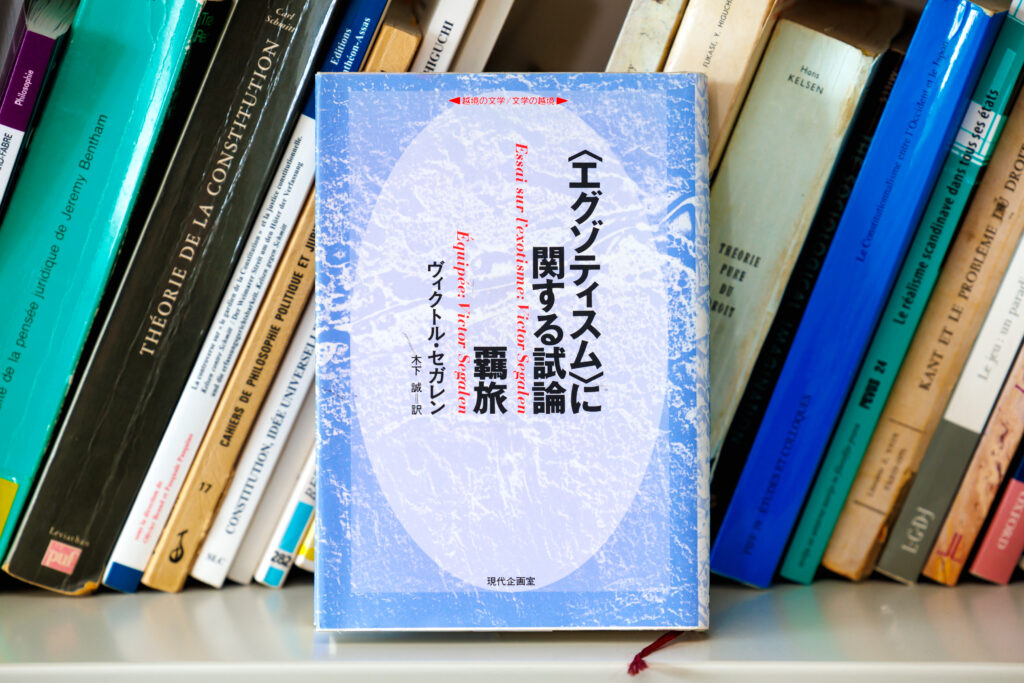
Professor Serverin from the Faculty of Foreign Studies researches the role and the history of constitutional law in Japan. His focus has recently expanded to include gender equality in politics and society. He discusses gender parity laws and efforts to increase the number of female politicians in France.
Comparative studies between Japanese and French societies and governments is my research topic. My interest in Japan began when I was in college, and I felt that Japan was far from France not only geographically but also culturally and linguistically. France and Japan were polar opposite in every respect. Since I have experienced and enjoyed these differences in both countries, I always encourage my students to pay attention to things that are puzzling and enjoy their mysteriousness.
The main theme of my research is constitutional law in Japan. The study of constitutional law is not to research law itself, but to look at the interpretation of constitutional law in Japanese history – the expectation and the role in society at the time, and the background behind it. It is closely tied to the study of thought in the post-Meiji period.
Study of Japan’s constitutional law related to history of thought in modern Japan

In France, the constitution simply functions as the law and doesn’t have any political implications. However, in Japan, the concept of a constitution was adopted during Japan’s westernization during the Meiji era. In addition to creating laws and defining their interpretations, constitutional scholars in Japan had to mull over what the appropriate constitution for Japan should be, and were responsible for explaining to the public the meaning of the constitution and the reasons behind its creation.
In Japan, there are always heated debates whenever there is a constitutional amendment. Constitutional scholars in Japan are considered experts and asked for their commentary on politics and the future of the country. On the other hand, in France, the constitution has been amended over 100 times and constitutional scholars are not approached by the media. These differences are very intriguing.
The keyword to understand the difference is constitutionalism. In Japan, it is perceived that the constitution is essential to achieve democracy. Without the constitution, there is no democracy. On the contrary, in France, democracy is indisputable. And democracy needs constitutionalism.
I am planning to write a book about the theories and thoughts established by Japanese constitutional scholars in French, organizing it in the pre-and post-war time frame.
Studies on gender and economic influences on becoming a politician
Since I started teaching in the department of French studies at Sophia University, I’ve been involved in writing French textbooks and conducting comparative studies of Japan and France on the topic of society and government which interests many students. One such topic is the gender parity law enacted in 2001 in France. The law mandates that political parties endorse an equal number of male and female candidates in elections. This parity law has attracted a lot of attention in Japan since female politicians are scarce and the country is considering introducing a similar law.
France was in a similar situation in the 1990’s, but now that 20 years have passed since the introduction of the gender parity law, the number of male and female politicians is almost equal. I have written several papers on the history and interpretation of the parity law as well as the promotion of gender equality. I have teamed up with a group of researchers and we are currently conducting interviews with female politicians in France and Japan.
The French electoral system allows candidates with little funds to run for office. In the 2022 elections, Rachel Keke, a former janitor, won a seat in the French parliament in a much-publicized victory. Her achievement in the labor union was recognized and she attracted support by promising to be pro-labor.
In addition to increasing the number of female politicians, and narrowing the gender gap, it is crucial to eliminate the economic gap in the electoral system. Economic status shouldn’t affect the ability to run for elected office.
The book I recommend
“Essai sur l’exotisme – Fata Morgana by Victor Segalen”
(translated by Makoto Kinoshita), published by Gendai Kikaku Shitsu

The author lived in Asia for a long time. He argues th “exoticism is not evil. People are drawn to unfamiliar cultures that they don’t understand. They should savor their excitement as a gourmand enjoys good food.” I empathized with this idea, and it gave me an opportunity to explore Japan studies.
-
Simon Serverin
- Associate Professor
Department of French Studies
Faculty of Foreign Studies
- Associate Professor
-
Simon Serverin graduated from Paris Diderot University (Paris 7) from the Department of Japanese Culture with a major in political thought. Afterward, he attended graduate school at Kobe University’s School of Human Development and Environment where he completed his PhD degree. He became an associate professor at Kanagawa University in the Faculty of Foreign Languages after which he began his current position at Sophia University in 2018.
- Department of French Studies
Interviewed: September 2022